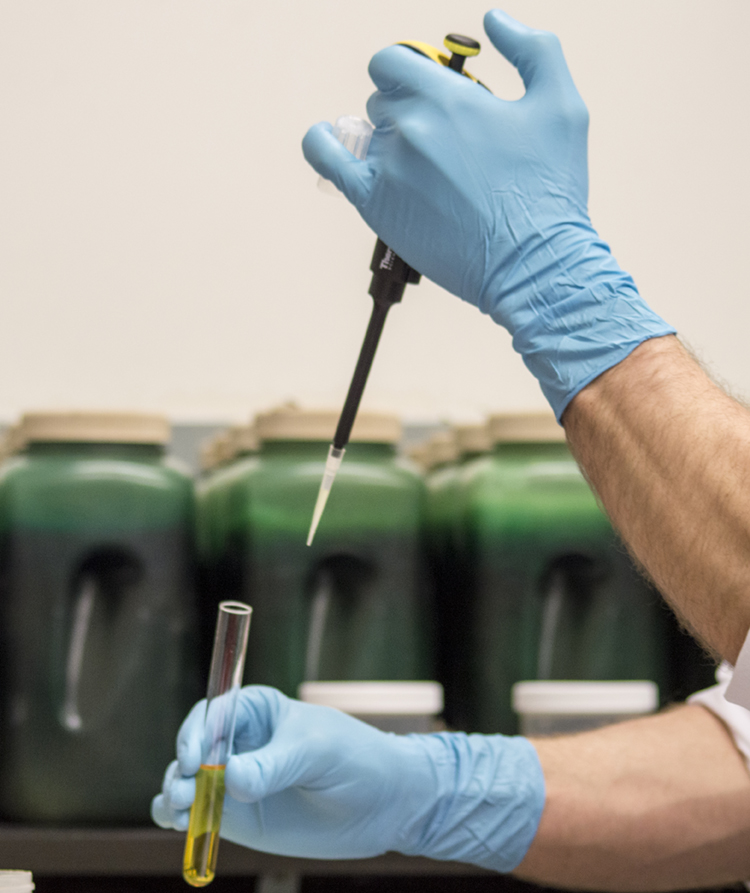What standards apply to disposable exam-grade gloves? How do you know if the gloves you are wearing are safe? These are among the most frequent questions we get from distributors and end-users alike.
What is the difference between exam- and industrial-grade gloves?
Expressed as simply as possible: Exam- and industrial-grade gloves vary in quality, specifically in the number of manufacturing defects per batch of gloves. But there is a lot more nuance to it than one might think.
Differentiation is based on the Acceptable Quality Level (AQL) rating established by the American National Standards Institute, or ANSI. This is an international standard that gauges the likely percentage of pinhole defects in a batch of gloves.
Gloves from a production batch are filled with 1,000 ml of water, suspended with fingers pointing down, and examined for leaks. In a batch of 100 gloves with an AQL of 3.0, only three gloves in that batch can fail the test. More than three, and the entire batch is rejected.
The industrial glove standard
An AQL of 3.0 to 4.0 is used for industrial gloves, while exam-grade gloves are held to a higher standard of 2.5 or lower. That means that fewer than 2.5 gloves in a batch of 100 can fail. An AQL of 2.5 does not ensure that the gloves are perfect, but they are as close as they can be.
Under standards developed by the American Society for Testing and Materials—ASTM D6319, D5250, and D3578—the minimum AQL requirement is set at 2.5 for exam-grade gloves. The U.S. Food and Drug Administration’s requirement is also AQL 2.5, per 21 CFR 800.20 (c)(2).
One interesting fact about disposable glove testing and AQL is that glove makers typically manufacture exam- and industrial-grade gloves on the same production line. Although industrial gloves also pass standard quality testing by the manufacturer, they are not required to undergo testing for medical purposes.
Safety is always what matters
This is not to say industrial-grade gloves are not safe. Many, particularly nitrile gloves, deliver excellent protection against chemicals and hazardous substances. Simultaneous production is simply an efficient way for manufacturers to produce both types of gloves while delivering appropriate quality.
Exam-grade nitrile gloves require registration as a Class I medical device with the U.S. Food and Drug Administration. Registration has recently been eliminated for exam-grade latex and vinyl gloves. Nitrile registration requires the AQL test, accompanied by AQL and ASTM documents.
What registration, certification, and quality standards are required for exam-grade gloves?
The FDA has long required registration of all medical devices. Because disposable exam gloves are considered a Class I medical device, every exam-grade glove technically required an FDA medical registration, called a 510(k), to show the glove meets required specifications.
That process, however, has been evolving.
In 2020, the FDA began exempting some low-risk medical devices from 510(k) notification requirements and has proposed similar exemptions for several other device types to expand access to these products during COVID-19. According to a recent FDA notice, the seven Class I device types permanently exempt from 510(k) requirements include latex and vinyl surgical and examination gloves; these exemptions took effect Jan. 15, 2021.
This means exam-grade gloves should get to market more quickly, important during the coronavirus pandemic. The exemptions would allow the FDA to dedicate regulatory review resources to other areas, including devices and technologies that can be used to directly combat COVID-19.
Visit the FDA website for answers to more questions about medical disposable gloves.
Are exam gloves the same as surgical gloves?
No, they are not the same. While exam gloves are suitable for all non-sterile medical procedures, surgical gloves are sterilized by irradiation. The FDA considers an AQL of 1.5 to be the minimum level of quality acceptable for surgical gloves.
Then there are chemotherapy gloves, which have their own standard, ASTM D6978-05, that is extra stringent because of the harsh nature of chemotherapy drugs.
AMMEX carries a wide selection of exam-grade (and industrial-grade) gloves in nitrile, latex, and vinyl. Check out our product catalog for an overview of our brands.





